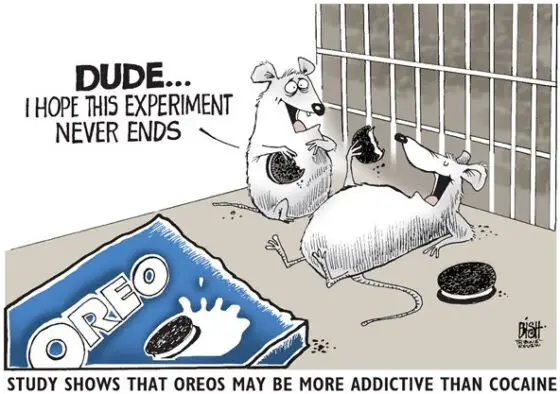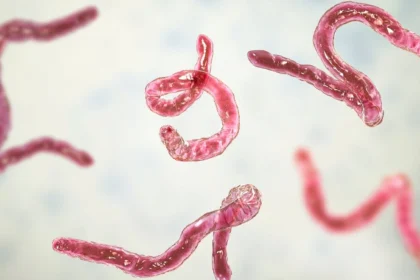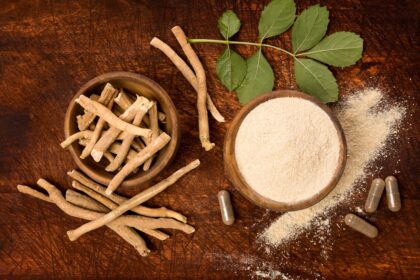Sugar: The Sweet Addiction Comparable to Cocaine
In recent years, a growing body of research has begun to unveil a startling similarity between sugar and cocaine: their addictive potential. While the comparison may seem exaggerated at first glance, numerous studies have revealed that sugar can trigger similar brain responses as some of the most addictive drugs, including cocaine. This revelation has significant implications for public health, dietary guidelines, and our understanding of addiction.
The Science Behind Sugar Addiction
Sugar addiction is rooted in its effect on the brain’s reward system. When we consume sugar, it stimulates the release of dopamine, a neurotransmitter associated with pleasure and reward. This reaction is akin to the response triggered by addictive drugs, which also flood the brain with dopamine. Over time, repeated sugar consumption can lead to alterations in brain chemistry, similar to those seen in drug addicts, causing cravings and dependency.
A pivotal study conducted by researchers at the University of Bordeaux highlighted these parallels. The study found that rats, when given the choice between a sugary solution and cocaine, overwhelmingly chose the sugar. Even those already addicted to cocaine switched their preference to sugar, underscoring its potent allure. The researchers concluded that the intense sweetness surpasses cocaine’s reward effects, highlighting sugar’s potential to induce addiction.
Comparing Sugar and Cocaine
While sugar and cocaine are vastly different substances with unique effects on the body, the comparison lies in their impact on the brain’s reward circuitry. Both substances elevate dopamine levels, creating a cycle of craving and reward. The brain’s response to sugar can, therefore, be as compelling as its response to cocaine, driving individuals to seek out and consume sugary foods compulsively.
Furthermore, a review published in the *British Journal of Sports Medicine* reinforced this comparison, noting that sugar consumption triggers bingeing, craving, tolerance, withdrawal, and cross-sensitization, all hallmark behaviors of addiction. These findings suggest that sugar’s addictive potential should not be underestimated, particularly in an environment where sugary foods are ubiquitous and heavily marketed.
Public Health Implications Of Sugar
The recognition of sugar’s addictive properties has profound implications for public health. With obesity rates soaring and related diseases like type 2 diabetes on the rise, understanding the addictive nature of sugar is crucial for developing effective interventions. Public health campaigns need to address not just the nutritional content of foods but also their potential to create dependency.
Governments and health organizations are beginning to respond. Some countries have implemented sugar taxes to reduce consumption, while others are exploring regulations on marketing sugary products to children. Additionally, there is a push for clearer labeling on food products to help consumers make informed choices about their sugar intake.
Moving Forward With Less Or No Sugar
Understanding that sugar can be as addictive as cocaine necessitates a paradigm shift in how we approach dietary habits and food policies. Reducing sugar consumption is not just a matter of willpower; it requires comprehensive strategies that address the environmental, psychological, and physiological factors that contribute to addiction.
Parents, educators, and healthcare providers play crucial roles in this effort. By promoting healthier eating habits from a young age and educating individuals about the risks of excessive sugar consumption, we can begin to curb the addiction cycle. Additionally, further research is needed to develop effective treatments for sugar addiction, potentially borrowing strategies from addiction therapy used for drugs.
In conclusion, the revelation that sugar can be as addictive as cocaine underscores the need for a multifaceted approach to address its consumption. Recognizing the addictive potential of sugar is a critical step toward improving public health outcomes and fostering a healthier society. As we continue to explore the depths of this sweet addiction, the hope is that increased awareness and proactive measures will lead to a decrease in sugar-related health issues, paving the way for a healthier future.
How To Trick Your Brain into Breaking The Sugar Addiction:
Why I Recommend Stevia
True high quality organic stenia is the only sweetener that I know of that does not raise blood sugar levels. This is important because other sweeteners such as agave, honey or any other syrup derived sweetener will all affect your blood sugar levels causing them to spike. This triggers an insulin response. Insulin is the hormone that responds to sugar in the body and manages glucose to keep it in the normal range.
In order to bypass this sugar spike and insulin response but still get that sweet tooth fix, stevia is an exceptional plant to use. It’s actually sweeter than stevia but keeps your blood sugar levels healthy.
I get my stevia from Omica Organics. Be sure to use the discount code: HealthyWildFree to get 10% off your order. They have amazing flavors like vanilla, butterscotch, sweet blossom or plain. I use these to flavor drinks in order to get my sweet tooth fix but not have to feel like I need sugar. The best part is that these bottles last a LONG time because you only use a few drops per drink, that’s how sweet they are. Oh, and they’re certified organic!





